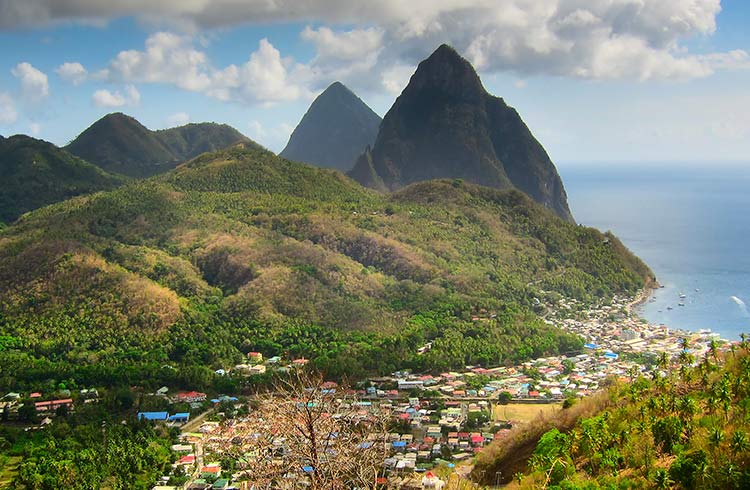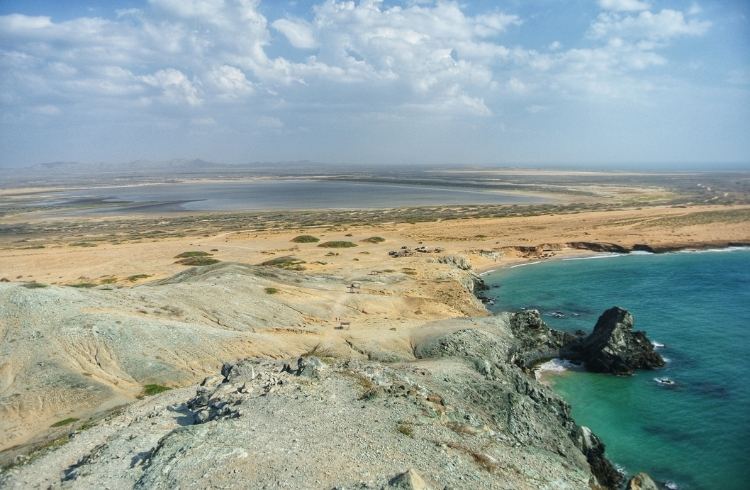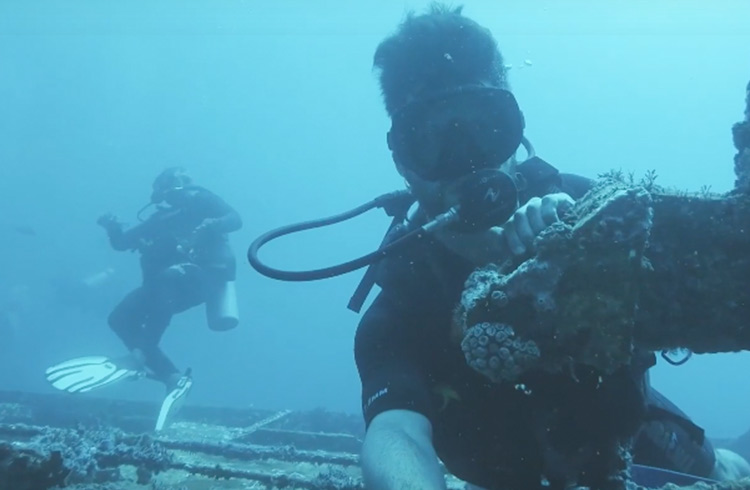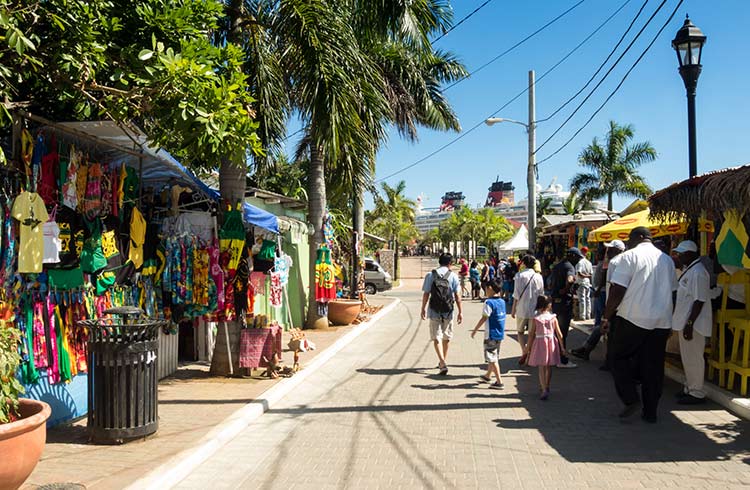Is St. Lucia Safe? Essential Travel Tips for Visitors
Rainforests, waterfalls and volcanic landscapes make St Lucia a stunning Caribbean destination to explore. But before you go, here are our top tips to stay safe and avoid crime.
 Photo © Getty Images/photogodfrey
Photo © Getty Images/photogodfrey
St Lucia is a friendly and welcoming eastern Caribbean country, home to the world's only drive-in volcano (which is thankfully dormant) and an annual jazz festival held each year in May.
It's also a popular destination for cruise ships and a favorite with honeymooning couples.
Crime in St Lucia
With a population of approximately 180,000 people, this beautiful tropical island isn't too overcrowded. St Lucians are relatively well-off, and crime rates are low.
Crime remains low in St. Lucia but use common sense as you would anywhere. Avoid walking down quiet, unlit streets at night alone, and if you've got a long, late night walk back to your accomodation, use a taxi.
Muggings and theft from hotels, yachts or holiday rentals do occur, and occasionally come with violence. There have been armed robberies at waterfalls in the Anse La Raye area, so be careful traveling to these areas, and visit with a group of people.
Avoid walking alone in isolated areas, including beaches after dark, and only go camping in large groups.
Take care at popular late night street parties and "jump-ups".
Be cautious about accepting lifts from strangers, and use only licensed taxis.
The St Lucian authorities are working with the tourism industry to maintain a safe environment for visitors.
Getting around St Lucia safely
Most roads are narrow and are in varying states of repair.
In mountainous areas, roads can be steep and have sharp hairpin bends, some of which are not clearly marked.
Four-wheel drive vehicles with automatic gearboxes are popular, and in some areas essential. Driving standards are variable and you should negotiate roundabouts with extreme care. Given local conditions, drive slowly and cautiously.
It is common for pedestrians to flag down vehicles in an attempt to get a lift. You should not stop to do so. It is advisable to keep car doors locked when driving.
There are regular mini bus services, which provide relatively cheap, but sometimes dangerously fast, travel between all main towns.
Standard taxi fares exist for most destinations but you should clarify the fare with the driver before the beginning of the journey.
The drive from Hewanorra International Airport to Castries or to Rodney Bay is a winding road through mountainous terrain and takes between 1 to 1.5 hours. If you are prone to travel sickness, some anti nausea medication might be advisable.
Local laws and hazards
Camouflage clothing or luggage are banned in St. Lucia.
Climbing one of the twin Pitons is a popular attraction. Gros Piton is the most accessible option, but ensure you have packed sufficient supplies and are feeling well enough to handle the four-hour return hike.
As on other Caribbean islands, street vendors can be intimidating. A polite "no" should do the trick, so keep walking and avoid making eye contact if you aren't interested in what they're selling.
Water safety
Not all of St Lucia's beautiful beaches have lifeguards or warning flags in attendance. Be aware of strong currents, ask locals for advice on where and when to swim and obey any instructions or safety signs.
Related articles
Simple and flexible travel insurance
You can buy at home or while traveling, and claim online from anywhere in the world. With 150+ adventure activities covered and 24/7 emergency assistance.
Get a quote


2 Comments
A note of caution to would be tourists heading for St Lucia. They have a distant relationship with building regulations, health and safety law, and it is impossible to advise travellers to be careful of this or that:
In August 2019 my husband Martin Ellis was electrocuted in St Lucia, where he had taken our three sons on holiday (I stayed in the UK because I am disabled). He and the boys were on state property, the John Compton dam, the responsibility of a state-owned company Wasco (water and sewerage company of St Lucia). A division of an international engineering company, Vinci Maritime a Fluvial, has been contracted by Wasco to desilt the freshwater reservoir lake behind the dam. In turn, they are using a local subcontractor to do the work.
My family took shelter from a sudden rainstorm under the overhanging eaves of a small building right in front of the dam wall. Martin made to go behind the building to have a pee. In so doing he touched a metal conduit pipe attached to the dam wall at body height. What should have been an insulated wire delivering electricity to the pumping equipment in the building was, in fact, live. The electrical installation was not earthed and he died almost immediately - the boy nearest to him witnessed him in the throes of a fatal heart attack. The eldest dragged him away from the source of electricity, though as both of them were wringing wet he experienced multiple electric shocks in the process.
The incident was covered in the press after an inquest was held in the UK, (search on 'Martin Ellis St Lucia).
The report written by the chief engineer of the St Lucia electricity board three days later found the installation had not been maintained by Wasco, indeed it had not been inspected for many, many years. For example, the earth rod had disintegrated. However, the managing director of the electricity board suppressed this report until the following March, though it had been requested by the St Lucian police and the British High Commissioner on behalf of a London coroner. It has been suggested he would not release the report for fear of its contents damaging his personal standing.
The day after my husband was killed, Wasco issued a factually incorrect press statement blaming Martin for his own death, saying he ignored warning signs not to enter a restricted area. His UK inquest found there were no such warning signs and workmen at the site, far from turning tourists away, showed my family where to go.
Wasco have refused to respond to attempts to contact them in connection with this incident. these have ranged from Martin's brother travelling from the UK and asking in person to see the general manager of Wasco, who refused to come to the door to, most recently, a letter from our legal representatives outlining what happened and why, inviting Wasco to accept responsibility. There has been no reply, meaning a lawsuit will be filed against them in the New Year.
This was not an isolated incident. Martin was the second British tourist to be electrocuted in St Lucia. Hannah Defoe was electrocuted when she dived into her hotel swimming pool, which had a live wire touching the water. It took seven years before any resolution was reached.
The matter of my husband's death in St Lucia was covered in the press at the time of his UK inquest. it will feature again early in the New Year, when the Sunday Times is preparing to cover the response, if any, to legal approaches to Wasco and the response, if any, to a letter written by our MP, Kier Starmer, to the Prime Minister of St Lucia.
Quite what advice you give to people travelling to this island, I don't know. If you cannot assume you will be safe on government property, where can you assume you will be safe? The best advice is to take out very good travel insurance, should the worst happen. Or tell people to go only where they can see other tourists.
October 2021.
Still no progress. It would appear to be a three handed game of rock paper scissors, with the water company (Wasco), their contractors (Vinci Maritime et fluvial) and their subcontractors (Mega construction) all saying it's the others' fault that Martin was electrocuted and refusing to come to the negotiating table.
With British lawyers having no jurisdiction in St Lucia, our UK solicitors are dependent upon a local firm carrying out their orders. Unfortunately, they have no sense of urgency and, having been provided with all the necessary information to file a lawsuit for compensation and damages, they can't get around to doing it.
Lessons learned:
1. Should you need to make a claim on your travel insurance after a serious accident or death on holiday, don't waste your time with the cheap panel lawyer appointed by your travel insurer. You get what you pay for. Find a good personal injury lawyer.
2. Remuneration under Conditional Fee Arrangements (no win no fee) are not a percentage of your financial award. Their fees are paid by the losing side. Sometimes the person on whose behalf they are acting will give their PI lawyer a bonus equivalent to a percentage of their fees, though a reputable firm will not expect this.